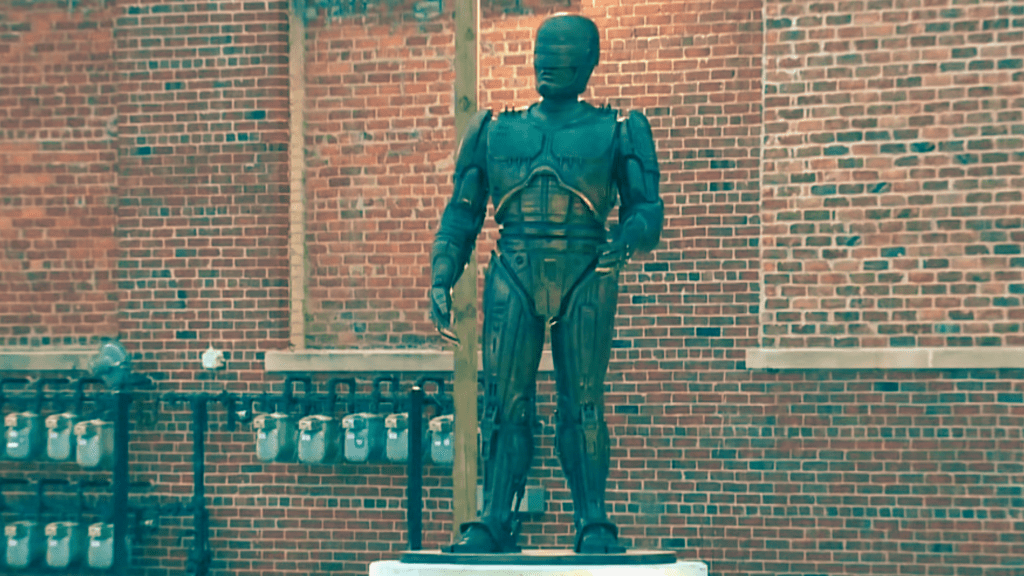The ripple effect from Russia’s invasion of Ukraine has reached the United States border, with the first trickle of people displaced by the conflict starting to arrive in Tijuana, Mexico, hoping to cross into the U.S. to seek protection.
The arrival of Ukrainian and Russian asylum-seekers — including at least one woman and her three children who were allowed into the U.S. on Thursday, and eight others currently stuck in Tijuana — is testing the limits of President Joe Biden’s willingness to continue enforcing a Trump-era policy that has blocked thousands of asylum-seekers from crossing the border.
Videos by VICE
The first Ukrainians arrived Monday at the port of entry near San Diego, a 34-year-old mother who’s been identified only as Sofiia, accompanied by her kids, ages, 14, 12, and 6. They were turned away twice, once in a car on Tuesday and later on foot, according to the San Diego Union-Tribune, which had a reporter present when Sofiia and her family tried to walk across into the U.S. on Wednesday.
Customs and Border Protection (CBP) agents reportedly cited the policy known as Title 42 when turning the family away, according to immigration attorneys who were helping the family and tweeting from the scene on Wednesday. Enacted under President Donald Trump at the outset of the coronavirus pandemic in March 2020, Title 42 puts tight restrictions on who can cross the border “in the interest of public health.”
In years past, migrants who reached the U.S. border could seek asylum or other humanitarian protections. They were typically detained or released into the country pending a final immigration court decision, a process that could take years due a large case backlog. Today, under Title 42, some people are flown back to their home countries but most are simply returned to Mexico, where they face threats of kidnapping, robbery, and worse at the hands of cartels and criminals along the border.
That was nearly the case with Sofiia.
“I’m not asking for anything from the United States, just to be let in,” she told the Union-Tribune after being turned away on Wednesday. “All we need is to be safe. All we want is to keep our lives safe.”
Sofiia reportedly worked as a Hebrew teacher in Ukraine and has family members in the U.S. who have helped her flee the Russian invasion. When the war began, Sofiia drove from Ukraine to neighboring Moldova, then Romania, and then flew to Frankfurt, Germany. From there, she flew to Mexico City and then took another flight to Tijuana.
“We left our lives, our jobs, our families and houses in Ukraine just to escape from this horrible war,” Sofiia told the Union-Tribune. “All my friends and family are far, far away from me, and I don’t know if they will be alive tomorrow. I just want to keep my kids’ lives safe.”
Erika Pinheiro, policy and litigation director for Al Otro Lado, an organization that provides legal aid and support for people trying to cross the border, told VICE News that what happened to Sofiia is an everyday occurrence for thousands of Central Americans, Haitians, and asylum-seekers from other countries who have been desperately trying to enter the U.S. since Title 42 began. The only recourse is to seek a “humanitarian exemption,” Pinheiro said.
“Usually those requests are only granted to refugees at imminent risk of death or those with extremely serious medical issues for which they cannot access care in Mexico, but I am hoping that we will have more success here given the situation in Ukraine,” said Pinheiro.
Blaine Bookey, legal director of Center for Gender and Refugee Studies, who helped Sofiia and her family in Tijuana, said CBP agents were hostile.
“They’re telling families that Title 42 is in place, no exceptions,” Bookey said “They’re telling them to leave. They’ve been yelled at, told to move, just generally it’s an abusive environment.”
According to Al Otro Lado’s data, the approval rate for humanitarian exemption requests for Title 42 is around 25 percent for all nationalities aside from Haitians, and around 14 percent for Haitians. The approval rates differ drastically depending on the port of entry, Pinheiro said, with some regularly allowing exceptions and others granting virtually none.
“And those are almost all extreme medical cases,” Pinheiro said. “So, if [Sofiia] were not Ukrainian, she would most definitely be trapped in Tijuana until Title 42 is lifted.”
Sofiia was ultimately allowed to enter the U.S. on Thursday morning, but it’s unclear whether border officials will extend Title 42 exemptions to other Ukrainians. A spokesperson for CBP told VICE News that Sofiia and her family were permitted entry after the agency “reviewed the facts of their case.” The CBP spokesperson said the government is “continuing to exempt particularly vulnerable individuals from Title 42 on a case-by-case basis.”
Asked about the situation with Ukrainians at the border, a White House spokesperson told VICE News that “Title 42 continues to be in place and is enforced – regardless of country of origin.”
But with mass displacement from the conflict and more Ukrainians seeking to reunite with family members in the United States, the Biden administration may soon face a reckoning with Title 42. As of Friday morning, according to Pinheiro, there were six Ukrainians and two Russians in Tijuana trying to cross into the U.S. and seek asylum.
One Ukrainian family was separated after crossing the U.S.-Mexico border earlier this week, leaving a father and his six-month-old baby on the U.S. side while the mother was held in immigration detention, according to an attorney who represents the family.
Immigration attorney Jacob Sapochnick told VICE News the family fled Ukraine a day before the first Russian attack, traveling through Poland to Germany, then taking a flight to the Mexican resort city of Cancún, then onto Mexico City and finally Tijuana. Ukrainians need a visa in order to fly to the United States, but they can book travel to Mexico without any special travel documents. With a tourist visa, Ukrainians can legally stay in Mexico for up to 180 days.
Sapochnick said his client Kirill Kara is a dual Ukrainian-American citizen but his wife Lena is not. The couple rented a car in Tijuana and drove with their baby to the border crossing.
“When they arrived at the CBP station the officer told them ‘I know why you are here’, and took her into custody,” Sapochnick said. “At the port of entry she was separated from her six-month-old baby. CBP had her in custody for six days before releasing her and that was only because I involved the media.”
Sapochnick said Lena Kara was released Friday and reunited with her husband and baby in the U.S. They are now planning to “explore all possibilities to allow her to stay with her family.”
The U.S. reluctance to unconditionally accept Ukrainians has drawn sharp criticism in light of the praise the Biden administration has heaped on European countries for welcoming refugees from the conflict with mostly open arms. As of March 11, most Ukrainian refugees have fled to neighboring countries, with 1.5 million going to Poland, 225,000 to Hungary, and 176,000 to Slovakia, according to the United Nations’ refugee agency. Tens of thousands have also crossed into Russia, Romania, and Moldova, and more than a quarter-million others have left for other European countries, including Germany.
The U.S. State Department announced last week that Ukrainians can apply for a temporary visa at any American consulate, with the location in Frankfurt designated as the processing hub. Ukrainians already living in the U.S. now qualify for “Temporary Protected Status” or TPS, which will allow them to remain in the country indefinitely without fear of deportation. But the same TPS protections do not apply for new arrivals at the border.
The Biden administration has reportedly been quietly preparing to roll back Title 42 in April, according to a report Thursday from BuzzFeed News, which obtained documents indicating that U.S. officials plan to notify their Mexican counterparts about the plan in the coming week. News agency Reuters also reported Wednesday that Biden is “leaning” toward ending Title 42.
With more Ukrainians en route to the border, the White House may be forced to act soon. Sapochnick, the attorney for the family that was separated, said he’s been getting “more and more calls” from Ukrainians trying to apply for asylum in the U.S.
“Right now it is very unclear to know who CBP is using Title 42 on,” Sapochnick said. “It’s very arbitrary.”
More
From VICE
-

XNY/Star Max/GC Images -

Roy Rochlin/Getty Images for MTV -

(Photo By Raymond Boyd/Getty Images) -

Photo: CBS News Detroit
